Find Help
More Items From Ergsy search
-

I'm Getting a Divorce | Tips From a Divorce Lawyer
Relevance: 100%
-
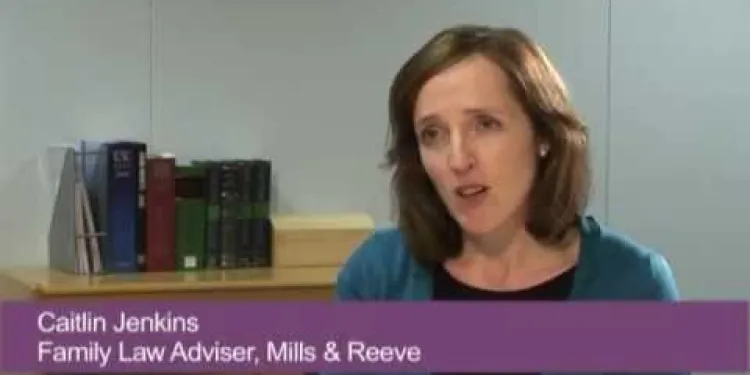
Divorce UK: What happens with the money in a divorce?
Relevance: 98%
-

A Guide to the Divorce Process
Relevance: 96%
-

Divorce UK (England and Wales) | UK Divorce Process and Overview Explained PART 1 | BlackBeltBarrister
Relevance: 94%
-
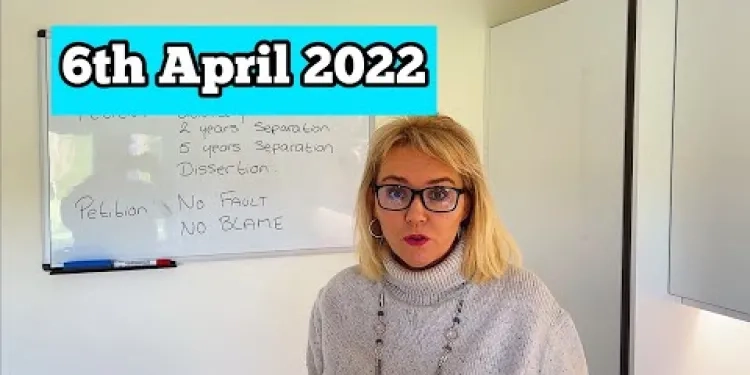
NO FAULT DIVORCE (What is there to know)
Relevance: 92%
-

Understanding Your Rights in Divorce Proceedings
Relevance: 87%
-
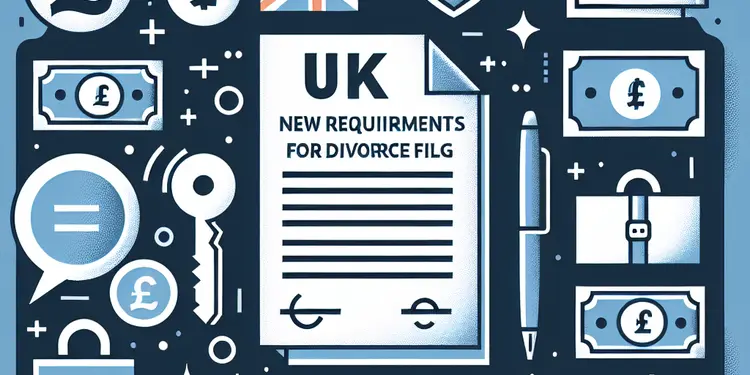
Are there any new requirements for divorce filings in 2026?
Relevance: 85%
-

Understanding Your Rights During Divorce Proceedings in the UK
Relevance: 84%
-

Can firefighter pension benefits be divided in a divorce?
Relevance: 83%
-
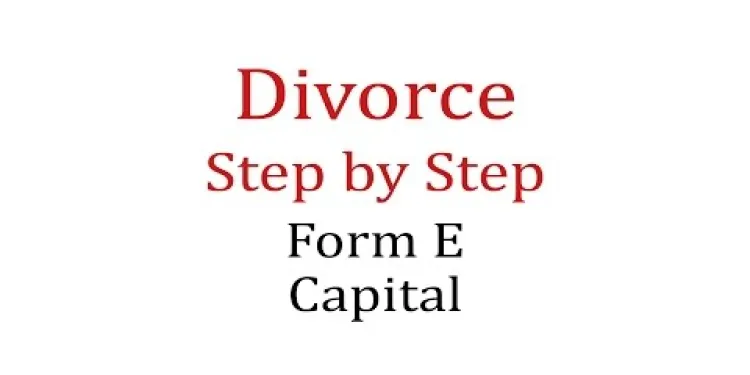
Divorce Step By Step - Form E - Capital
Relevance: 81%
-

Ultimate Guide to Financial Disclosure on Divorce in the UK
Relevance: 79%
-

The 4 Steps to Agree a Financial Settlement on Divorce UK
Relevance: 79%
-

Divorce - How To Rebuild Your Life After Losing Everything
Relevance: 75%
-

Navigating Changes in Family Law Post-Brexit
Relevance: 39%
-

Are there any changes to spousal support regulations in 2026?
Relevance: 36%
-
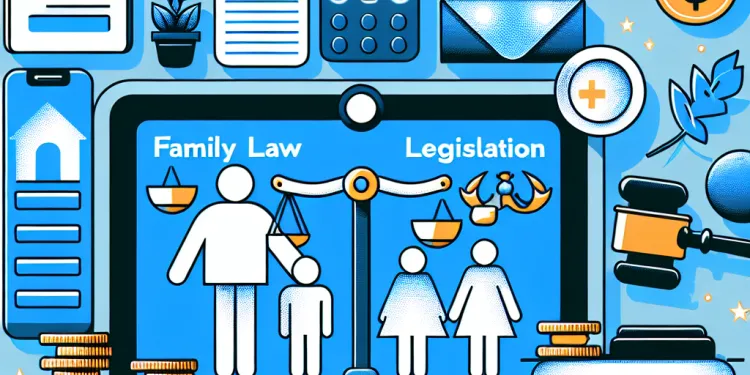
Impacts of Recent Changes to Family Law Legislation
Relevance: 35%
-

Navigating Post-Divorce Finances Amidst Economic Challenges
Relevance: 32%
-
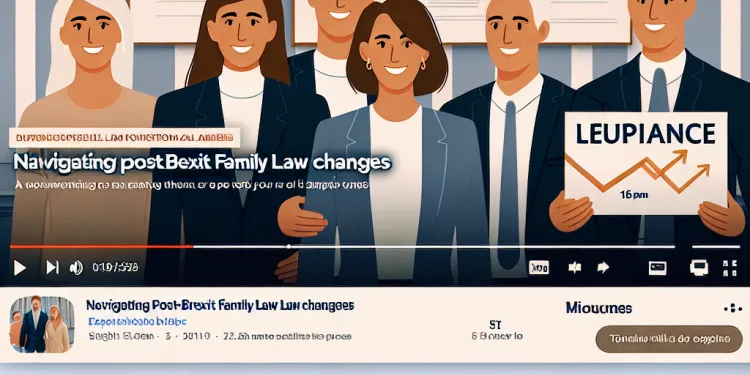
Navigating Post-Brexit Family Law Changes
Relevance: 29%
-

The Family Court without a Lawyer
Relevance: 29%
-

What properties are exempt from Stamp Duty?
Relevance: 28%
-

Have the rights of same-sex couples been affected by the 2026 family court changes?
Relevance: 28%
-

Helen Starkie, Solicitor, Bath, UK
Relevance: 26%
-
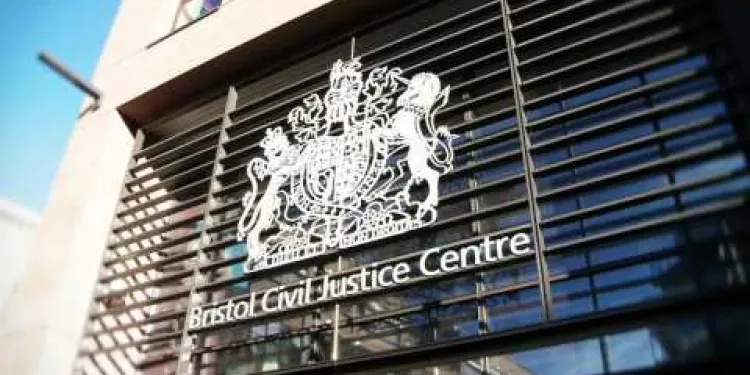
The Family Court without a Lawyer - Video 1 of 3
Relevance: 23%
-

What should I do if my circumstances change?
Relevance: 22%
-

What if my circumstances change?
Relevance: 22%
-
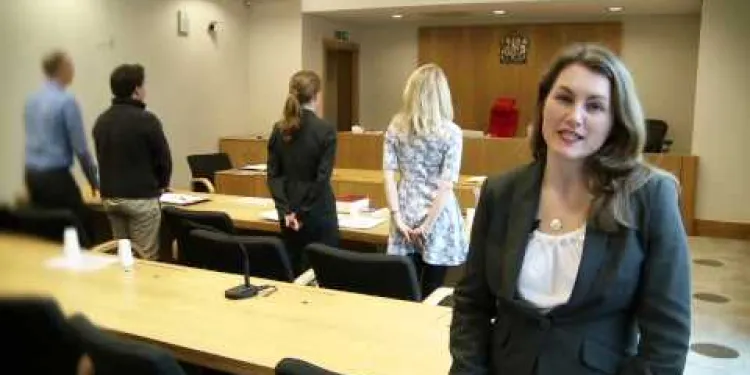
The Family Court without a Lawyer - Video 2 of 3
Relevance: 20%
-

The Family Court without a Lawyer - Video 3 of 3
Relevance: 19%
-

BSL - Causes of panic disorder
Relevance: 19%
-

Can I nominate a beneficiary for my firefighter pension benefits?
Relevance: 18%
-

How do I pay Stamp Duty in the UK?
Relevance: 18%
-

How often should I review my pension plan?
Relevance: 17%
-

What are the causes of the loneliness epidemic?
Relevance: 17%
-

How To Protect Family Assets | Trusts Explained UK
Relevance: 16%
-

What happens to the pension benefits upon the death of a firefighter?
Relevance: 13%
-
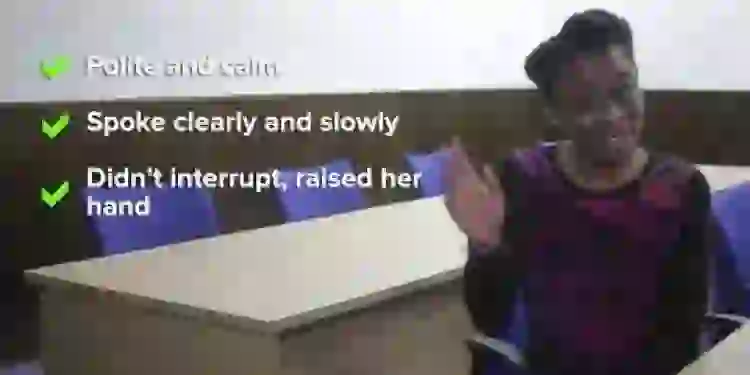
How to represent yourself in family court in England and Wales
Relevance: 13%
-

What is the status of joint custody provisions in the 2026 family court updates?
Relevance: 13%
-

Is there any inheritance tax exemption for spouses or civil partners?
Relevance: 12%
-

Can stress trigger shingles?
Relevance: 12%
-

Have any changes been made regarding the enforcement of visitation rights?
Relevance: 12%
-

What is the current threshold for Stamp Duty in the UK?
Relevance: 12%
A Guide to the Divorce Process
Understanding Divorce in the United Kingdom
Divorce in the United Kingdom is the legal process of dissolving a marriage. It involves a series of steps that couples must follow to make their separation official. Understanding these steps can help make the process smoother and less stressful. This guide provides an overview of the key stages involved in obtaining a divorce in the UK.Grounds for Divorce
In the UK, a couple can file for divorce after being married for at least one year. The primary requirement is that the marriage has irretrievably broken down. This can be demonstrated through one of five facts: adultery, unreasonable behaviour, desertion for at least two years, two years' separation with both parties’ consent, or five years' separation without consent.Filing the Divorce Petition
The divorce process starts with filing a divorce petition. The petitioner (the person seeking the divorce) must complete a D8 form and submit it to the court. Alongside this, a fee is payable. The form outlines the details of the marriage, the grounds for divorce, and other relevant information. Once filed, the court will send a copy to the respondent (the other spouse).Acknowledgement of Service
Upon receiving the divorce petition, the respondent needs to complete an Acknowledgement of Service form. This indicates whether they agree or disagree with the divorce. If the respondent agrees, the process can proceed without the need for a court hearing. If there is disagreement, the case may go to court.Applying for a Decree Nisi
The petitioner can then apply for a Decree Nisi, a document that states that the court sees no reason why the divorce cannot proceed. Both parties will receive a copy of this document if the court is satisfied with the application. The Decree Nisi does not mean the divorce is final but is an essential step towards it.Finalizing the Divorce: Decree Absolute
Six weeks and one day after the Decree Nisi is granted, the petitioner can apply for a Decree Absolute. This final document legally ends the marriage. Upon issuance, both parties are legally free to remarry if they wish.Considerations and Legal Advice
Divorce often involves more than just legal procedures; considerations regarding children, finances, and property must also be addressed. It is advisable to seek legal advice to navigate these complexities effectively. Family solicitors or mediators can provide support in reaching amicable agreements and ensuring that all legal aspects are adequately managed. By understanding and following these steps, individuals can better navigate the divorce process in the UK with greater clarity and confidence.A Guide to the Divorce Process
Understanding Divorce in the United Kingdom
Divorce in the UK is the legal way to end a marriage. It is a series of steps that partners follow to become officially separated. Knowing these steps can make things easier and less stressful. This guide explains the main parts of getting a divorce in the UK.Grounds for Divorce
In the UK, you can ask for a divorce after being married for at least one year. You must show that your marriage cannot be fixed. This can be done by proving one of these five things: adultery, unreasonable behavior, leaving your partner for at least two years, living separately for two years and both agreeing, or living apart for five years without agreement.Filing the Divorce Petition
To start a divorce, you must fill out a form called a D8. This makes you the person asking for the divorce. There is a fee to pay, too. The form includes details about your marriage and why you want a divorce. The court then sends a copy to your partner.Acknowledgement of Service
Your partner gets the divorce petition and must fill out a form called an Acknowledgement of Service. This shows if they agree or disagree with the divorce. If they agree, the divorce can move ahead without a court hearing. If not, you may need to go to court.Applying for a Decree Nisi
Next, you can ask for a Decree Nisi. This is a paper from the court stating there is no reason to stop the divorce. Both partners get a copy if the court agrees. It is not the final step, but it is important.Finalizing the Divorce: Decree Absolute
After six weeks and one day from the Decree Nisi, you can ask for a Decree Absolute. This paper ends the marriage legally. Once you have it, you can remarry if you want.Considerations and Legal Advice
Divorce involves more than just papers. You also need to think about children, money, and property. It is smart to get legal help to handle these issues. Family solicitors or mediators can support you in making friendly agreements and managing all legal details. By knowing and following these steps, people can understand the divorce process in the UK better and feel more confident going through it.Frequently Asked Questions
What are the grounds for divorce in the UK?
In the UK, the sole ground for divorce is the irretrievable breakdown of the marriage, which must be proven by one of five facts: adultery, unreasonable behaviour, desertion, two years' separation with consent, or five years' separation without consent.
How long does the divorce process typically take?
The divorce process typically takes around 6 to 12 months, depending on the complexity of the case and whether both parties are in agreement.
Do I need to go to court to get a divorce?
Most divorces in the UK do not require a court appearance if both parties agree on the terms. However, if there are disputes over children, finances, or property, a court appearance may be necessary.
How much does a divorce cost?
The cost of a divorce varies, but it typically includes court fees (about £550) and legal fees, which can range from several hundred to several thousand pounds depending on the complexity of the case and the services used.
Can I get a divorce without my spouse's consent?
Yes, you can get a divorce without your spouse's consent if you have been separated for five years or if you can prove unreasonable behaviour, adultery, or desertion.
What is a 'no-fault' divorce?
As of April 2022, the UK has introduced 'no-fault' divorce, allowing couples to apply for a divorce without needing to assign blame. They can simply state that the marriage has irretrievably broken down.
What happens to our children during a divorce?
Arrangements for children need to be agreed upon, including where they will live and how much time they will spend with each parent. If parents cannot agree, the court may intervene to make these decisions.
How are financial assets divided in a divorce?
Financial assets are divided based on what is fair and reasonable, considering factors such as the length of the marriage, the needs of each party, and the welfare of any children. This may not always result in a 50/50 split.
What is a consent order?
A consent order is a legal document that confirms your agreement on financial matters and makes it legally binding. It can cover the division of assets, maintenance payments, and other financial arrangements.
Can I change my name back to my maiden name after divorce?
Yes, you can change your name back to your maiden name after divorce. You will need to provide your marriage certificate and the decree absolute as evidence.
What is a decree nisi?
A decree nisi is a provisional decree of divorce, indicating that the court is satisfied there are grounds for the divorce. It is not the final decree and does not end the marriage.
What is a decree absolute?
A decree absolute is the final decree that legally ends the marriage. You can apply for it six weeks and one day after the decree nisi is granted.
Can I remarry after my divorce?
Yes, you can remarry after your divorce is finalized. You will need to have the decree absolute to show that your marriage has legally ended.
What is mediation, and do I have to attend it?
Mediation is a process where a neutral third party helps divorcing couples reach amicable agreements on issues such as finances and childcare. It is often encouraged and sometimes required before taking disputes to court.
How do I start the divorce process?
To start the divorce process, you need to file a divorce petition with the court, providing details of your marriage and the grounds for divorce. This can be done online or by submitting paper forms.
Why Can People Get Divorced in the UK?
People can get a divorce in the UK for some main reasons:
- They do not love each other anymore and cannot fix it.
- One person has been unkind or hurtful to the other.
- One person left the other and they have lived apart for at least 2 years.
- They have lived apart for 5 years, even if both don’t agree.
If reading is hard, ask someone you trust to help read this with you.
In the UK, you can get a divorce if your marriage has broken down and can't be fixed. You need to show one of these five reasons:
- One person was unfaithful (adultery).
- One person behaved badly (unreasonable behaviour).
- One person left for a long time (desertion).
- You have been living apart for two years and both agree to the divorce.
- You have been living apart for five years and do not need both to agree.
When reading, it might help to use tools like audiobooks or apps that read text out loud. Breaking down sentences into smaller parts can also make reading easier.
How long does it take to get divorced?
Getting a divorce means you stop being married.
It usually takes a few months.
But each divorce is different.
Some can take more or less time.
If you use a calendar, it can help keep track of time.
Getting a divorce usually takes 6 to 12 months. It can be quicker or slower. It depends on how easy or hard the case is. It also depends on if both people agree on things.
Do I have to go to court to get a divorce?
Sometimes, you do not have to go to court to get a divorce. You might be able to agree on things with your partner about money, children, and other important things.
If you agree, you can fill out some papers and ask the court to end your marriage.
If you do not agree, you might need extra help to talk about things. You might try:
- Talking to someone who can help you both agree, like a mediator.
- Getting advice from a lawyer.
If you still can't agree, you might have to go to court, and a judge will help make these decisions for you.
In the UK, most divorces do not need people to go to court if they agree on everything. But if they argue about children, money, or things they own, they might have to go to court.
If reading is hard, try using pictures or videos to help understand. You can also ask someone you trust to read it with you.
How much money is a divorce?
Ending a marriage can cost money. Here is how:
- You might pay a lawyer to help you.
- You might need to pay fees to the court.
- Extra costs like changing your house or bank details might happen.
If you need help, you can:
- Ask someone you trust to explain things.
- Use a calculator to count costs.
- Look for advice from free legal services.
The price of getting a divorce can be different. There are some main costs: court fees, which are about £550, and legal fees. Legal fees can be a few hundred pounds or even thousands of pounds. It depends on how complicated the divorce is and what help you need from lawyers.
Can I get a divorce even if my husband or wife doesn't agree?
You can get a divorce without your husband or wife saying "yes." You can do this if you and your husband or wife have lived apart for five years. You can also do this if your husband or wife has behaved very badly, been unfaithful to you, or has left you.
What is a 'no-fault' divorce?
A 'no-fault' divorce is when two people stop being married and no one has to say it was the other person's fault. They just agree that they should not be married anymore.
Would you like some help to understand this? You can ask a friend, family member, or teacher to explain more. Using pictures or videos can also help make it clearer.
In April 2022, something new happened in the UK. People can now get a divorce without blaming each other. They just need to say the marriage didn’t work anymore.
What Happens to Our Children When Parents Split Up?
When parents decide to split up, it can be a confusing time for children. Here is a simple way to understand what happens and how to help:
- Children might feel upset or worried. It is important they know it is not their fault.
- Parents should talk with their children about what is happening.
- Sticking to a routine can help children feel safe.
- Parents can use a calendar to show when the child will see each parent.
- It is a good idea to ask a teacher or a counselor for help if a child feels sad or confused.
Remember, it is okay to have different feelings, and talking to someone you trust can help. Everyone wants to make sure the children are okay.
Parents need to decide where their children will live and how much time they will spend with each parent. If the parents can't agree, the court will help decide.
How do we split money and things in a divorce?
When people get a divorce, they need to share their money and things. This means deciding who gets what. Here are some tips to help:
- Make a list of everything you own together, like a house, car, or money in the bank.
- Talk to each other about what you both want.
- Work with a lawyer to make fair choices.
- Use pictures or drawings to help understand what is being shared.
- Ask a grown-up or a friend for help if you need extra support.
When people decide how to share money and things, they try to be fair. They think about how long the marriage was, what each person needs, and what's best for any children. This does not always mean they get the same amount each.
What is a Consent Order?
A consent order is a paper from the court.
It tells what two people have agreed on.
It can say what will happen with money or children after a breakup.
It is important to read it carefully.
You can ask someone you trust to explain it.
You can also use pictures or simple words to help understand.
A consent order is a paper that shows your agreement about money. It makes your agreement official in the eyes of the law. A consent order can say how you will split things like money and property, and if one of you needs to pay the other to help with living costs.
Can I go back to my old name after a divorce?
If you are asking if you can use your old name again after a divorce, the answer is yes.
Here is what you can do:
- Make sure you have your divorce papers. These papers show you are divorced.
- Tell places like your bank, work, and the government that you want to use your old name again. Show them your papers.
If you need help, you can ask a friend or family member.
You can also use tools like spell check and reading apps to help you. These can make reading and writing easier.
Yes, you can change your name back to your old name after a divorce. You will need to show your marriage paper and the final divorce paper to do this.
If you need help, you can ask someone you trust, like a family member or a friend. They can help you get the right papers and fill out any forms.
You can also use tools like checklists to make sure you have everything you need. This can make the process easier.
What is a decree nisi?
A decree nisi is a paper the judge can give you in a divorce. It means the judge agrees you can get a divorce, but you have to wait six weeks to make sure. After that, you can ask for a decree absolute, which finishes the divorce.
If you find reading hard, ask someone to help you or use text-to-speech tools. Drawing pictures of the steps can also help you understand.
A decree nisi is a paper from the court. It says the court agrees that there are good reasons for a divorce. It is not the final paper and does not mean the marriage is over.
What is a decree absolute?
A decree absolute is a legal paper. It shows that a marriage is over. This means two people are no longer married to each other.
To help understand this, you can:
- Ask someone to explain it to you.
- Use pictures to see what it means.
- Listen to a recording or watch a video about it.
The decree absolute is a paper that shows your marriage is over. You can ask for it six weeks and one day after you get the first paper called decree nisi.
Can I get married again after my divorce?
If you have had a divorce, you might wonder if you can get married again. The answer is yes, you can. You are allowed to marry someone else when your divorce is finished.
Here are some tips to help you:
- Make sure your divorce is complete and official.
- Take your time to think about getting married again.
- You can ask for help from a friend, family, or a counselor if you need it.
- If you have questions, you can talk to a lawyer.
It's okay to feel a lot of different emotions. Take your time to make the best choice for you.
Yes, you can get married again after your divorce is finished. You will need to have a paper called the "decree absolute" to show that your marriage is legally over.
What is mediation, and do I have to go?
Mediation is when a person called a mediator helps two people talk to each other and find a solution to a problem. You don't have to go if you don't want to, but it can help people agree and understand each other.
If it's hard to read or understand things, you can ask someone to help you. You can also use pictures or simple words to help understand better.
Mediation is a way to help people who are getting divorced talk and agree on things. A neutral person helps with this. They help the couple decide on important things like money and taking care of children. It is a good idea to try mediation before going to court.
How do I start a divorce?
Here is a simple way to start a divorce:
- First, talk to a lawyer. They can help you understand what to do.
- Next, fill out the divorce forms. You can get these forms at a courthouse or online.
- Then, take the forms to the courthouse and give them to the court. This is called "filing for divorce."
- If you need help, you can ask a friend or family member to go with you.
- You can also use online resources or ask a support group for advice.
If you find reading hard, you can:
- Ask someone to read the forms with you.
- Use apps that read text out loud.
- Look for videos that explain how to fill out forms.
Remember, it's okay to ask for help!
To begin getting a divorce, you must fill out a special form and give it to the court. This form asks for information about your marriage and why you want to get divorced. You can do this online or by using paper forms.
Useful Links
This website offers general information and is not a substitute for professional advice.
Always seek guidance from qualified professionals.
If you have any medical concerns or need urgent help, contact a healthcare professional or emergency services immediately.
Some of this content was generated with AI assistance. We’ve done our best to keep it accurate, helpful, and human-friendly.
- Ergsy carfully checks the information in the videos we provide here.
- Videos shown by Youtube after a video has completed, have NOT been reviewed by ERGSY.
- To view, click the arrow in centre of video.
- Most of the videos you find here will have subtitles and/or closed captions available.
- You may need to turn these on, and choose your preferred language.
- Go to the video you'd like to watch.
- If closed captions (CC) are available, settings will be visible on the bottom right of the video player.
- To turn on Captions, click settings .
- To turn off Captions, click settings again.
More Items From Ergsy search
-

I'm Getting a Divorce | Tips From a Divorce Lawyer
Relevance: 100%
-

Divorce UK: What happens with the money in a divorce?
Relevance: 98%
-

A Guide to the Divorce Process
Relevance: 96%
-

Divorce UK (England and Wales) | UK Divorce Process and Overview Explained PART 1 | BlackBeltBarrister
Relevance: 94%
-

NO FAULT DIVORCE (What is there to know)
Relevance: 92%
-

Understanding Your Rights in Divorce Proceedings
Relevance: 87%
-

Are there any new requirements for divorce filings in 2026?
Relevance: 85%
-

Understanding Your Rights During Divorce Proceedings in the UK
Relevance: 84%
-

Can firefighter pension benefits be divided in a divorce?
Relevance: 83%
-

Divorce Step By Step - Form E - Capital
Relevance: 81%
-

Ultimate Guide to Financial Disclosure on Divorce in the UK
Relevance: 79%
-

The 4 Steps to Agree a Financial Settlement on Divorce UK
Relevance: 79%
-

Divorce - How To Rebuild Your Life After Losing Everything
Relevance: 75%
-

Navigating Changes in Family Law Post-Brexit
Relevance: 39%
-

Are there any changes to spousal support regulations in 2026?
Relevance: 36%
-

Impacts of Recent Changes to Family Law Legislation
Relevance: 35%
-

Navigating Post-Divorce Finances Amidst Economic Challenges
Relevance: 32%
-

Navigating Post-Brexit Family Law Changes
Relevance: 29%
-

The Family Court without a Lawyer
Relevance: 29%
-

What properties are exempt from Stamp Duty?
Relevance: 28%
-

Have the rights of same-sex couples been affected by the 2026 family court changes?
Relevance: 28%
-

Helen Starkie, Solicitor, Bath, UK
Relevance: 26%
-

The Family Court without a Lawyer - Video 1 of 3
Relevance: 23%
-

What should I do if my circumstances change?
Relevance: 22%
-

What if my circumstances change?
Relevance: 22%
-

The Family Court without a Lawyer - Video 2 of 3
Relevance: 20%
-

The Family Court without a Lawyer - Video 3 of 3
Relevance: 19%
-

BSL - Causes of panic disorder
Relevance: 19%
-

Can I nominate a beneficiary for my firefighter pension benefits?
Relevance: 18%
-

How do I pay Stamp Duty in the UK?
Relevance: 18%
-

How often should I review my pension plan?
Relevance: 17%
-

What are the causes of the loneliness epidemic?
Relevance: 17%
-

How To Protect Family Assets | Trusts Explained UK
Relevance: 16%
-

What happens to the pension benefits upon the death of a firefighter?
Relevance: 13%
-

How to represent yourself in family court in England and Wales
Relevance: 13%
-

What is the status of joint custody provisions in the 2026 family court updates?
Relevance: 13%
-

Is there any inheritance tax exemption for spouses or civil partners?
Relevance: 12%
-

Can stress trigger shingles?
Relevance: 12%
-

Have any changes been made regarding the enforcement of visitation rights?
Relevance: 12%
-

What is the current threshold for Stamp Duty in the UK?
Relevance: 12%


